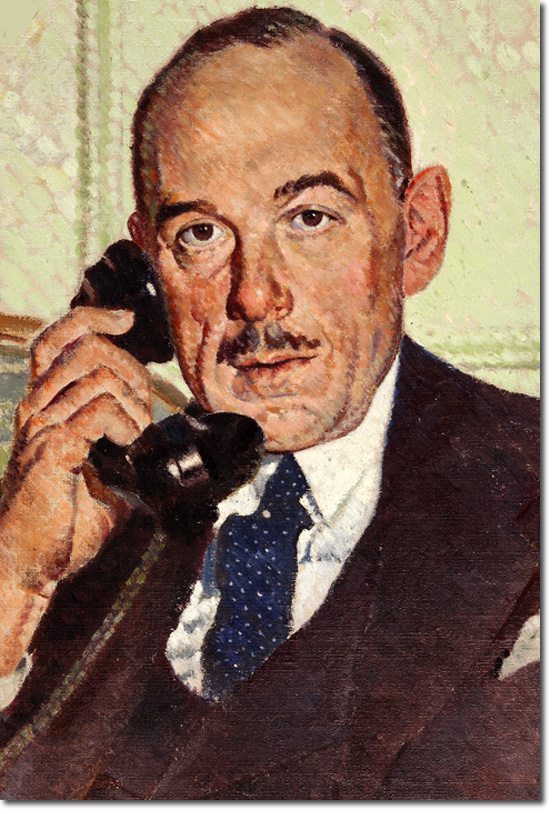|
|

 |
|
Oliver Lyttelton was born in Mayfair, the son of the Hon. Alfred Lyttelton, younger son of George Lyttelton, 4th Baron Lyttelton. His mother was his father's second wife Edith, daughter of Archibald Balfour. He was educated at Eton and Trinity College, Cambridge. He served in the Grenadier Guards in the First World War, where he met Winston Churchill. He joined the regiment on 23 Feb 1915 at Bethune as a 2nd Lieutenant in No.4 Company, 2nd Battalion. He had been promoted to Lieutenant by August 1915, and on 15 Oct 1915 he transferred to the 3rd Battalion at the beginning of a ten day period when they were in the front line at Loos suffering heavy loss. He was appointed adjutant of the battalion with the rank of Lieutenant, and later as acting-Captain. He was awarded the Distinguished Service Order for his bravery at The Somme on 15 Sep 1916 and the Military Cross in 1918, reaching the rank of Captain.
After the war he went into industry and politics. He was managing director of British Metal Corporation, at a time when it was a major shareholder in Metallgesellschaft A.G. a German Industrial giant which financed Hitler's Nazi party. He also served as Chairman of both the London Tin Corporation and Associated Electrical Industries. He was Conservative MP for Aldershot in 1940 and held posts in Winston Churchill's government. Chandos then returned to AEI, and steered it to become a major British company. In 1961 he was invited to deliver the MacMillan Memorial Lecture to the Institution of Engineers and Shipbuilders in Scotland. He chose the subject 'Jungle-or Cloister? - Some Thoughts on the Present Industrial Scene'. In 1962, Chandos became the first chairman of the National Theatre, serving until 1971. He then served as president until his death. His parents had been active campaigners for its development, and the Lyttelton Theatre, part of the National's South Bank complex, was named after him. During Laurence Olivier's tenure as director of the National, Chandos was a central figure in the controversy over a proposed production of Rolf Hochhuth's Soldiers. The production had been championed by Kenneth Tynan and accuses Churchill of assassinating Polish Prime Minister General Sikorski. Lawrence Olivier was chosen to play Churchill even though he was a great admirer of his, and did not particularly like the play or its depiction of Churchill. However, under pressure from his wife Joan Plowright, he backed Tynan. In the event the National board vetoed the production and Lord Chandos damned the play as a 'grotesque and grievous libel'. Lord Chandos married Lady Moira, daughter of George Osborne, 10th Duke of Leeds in January 1920. They had three sons and one daughter. He died in Marylebone, London, in January 1972, aged 78, and was succeeded by his eldest son, Antony. Lady Chandos died in May 1976, aged 84. He wrote the book From Peace to War; A Study in Contrast (1857-1918)
1893 Born in Mayfair 15 Mar |
Armed Forces | Art and Culture | Articles | Biographies | Colonies | Discussion | Glossary | Home | Library | Links | Map Room | Sources and Media | Science and Technology | Search | Student Zone | Timelines | TV & Film | Wargames